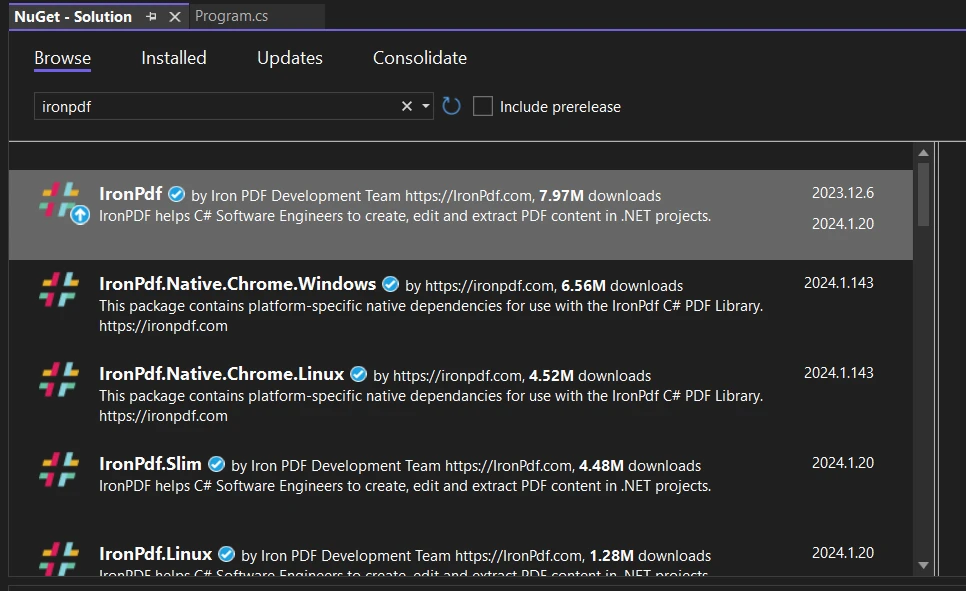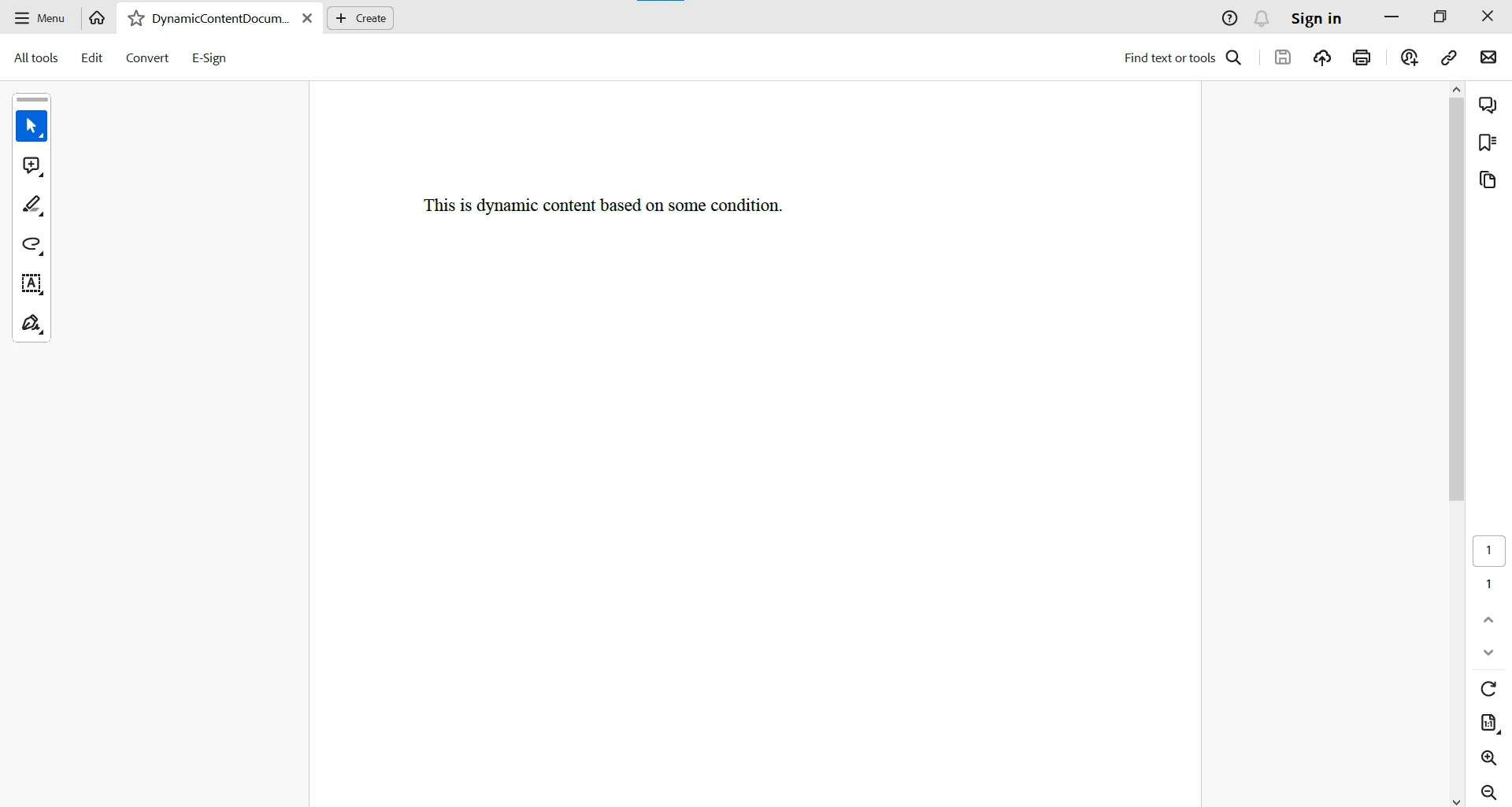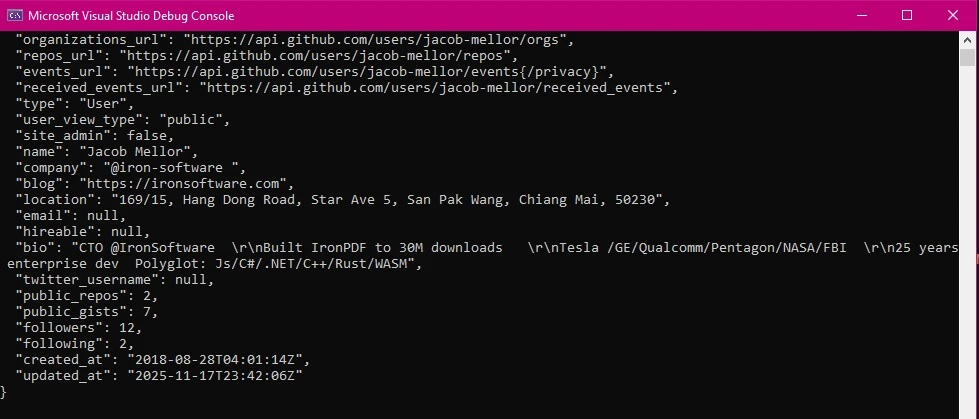C# Delegates (How It Works For Developers)
In C# programming, understanding delegates is of utmost importance for writing flexible and extensible code. Delegates serve as powerful entities that facilitate the implementation of callbacks, event handling, and functional programming paradigms within the language. Microsoft's guide on delegates provides a comprehensive overview on Delegate instances to be used in C# applications.
In this comprehensive guide, we will dig deep into the complexities of C# delegates, exploring their functionality, use cases, and how they empower developers to write more modular and scalable code.
Understanding C# Delegates: The Backbone of Callbacks
At its core, a delegate in C# is a type-safe object also referred to as a function pointer that encapsulates a method or more than one method. Delegates enable the creation of references to functions, providing a means to pass methods as parameters, store them in data structures, and invoke them dynamically. This makes delegates a cornerstone for achieving callback mechanisms and implementing event-driven architectures.
Key Characteristics of C# Delegates
- Type Safety: Delegates are type-safe, ensuring that the method signature they reference aligns with the delegate signature.
- Multicast: Delegates support multicast invocation, allowing multiple methods to be combined into a single delegate instance. When invoked, all methods in the multicast delegate are called sequentially.
- Anonymous Methods and Lambda Expressions: C# delegates seamlessly integrate with anonymous methods and lambda expressions, providing concise syntax for defining method bodies inline.
Basic Usage and Syntax
The fundamental steps for using delegates involve declaration with delegate type and parameters, instantiation, and invocation by defining callback methods. Here's a basic example:
// Delegate declaration
public delegate void MyDelegate(string message);
class Program
{
static void Main(string[] args)
{
// Instantiation
MyDelegate myDelegate = DisplayMessage;
// Invocation
myDelegate("Hello, Delegates!");
}
// Method to be referenced
static void DisplayMessage(string message)
{
Console.WriteLine(message);
}
}// Delegate declaration
public delegate void MyDelegate(string message);
class Program
{
static void Main(string[] args)
{
// Instantiation
MyDelegate myDelegate = DisplayMessage;
// Invocation
myDelegate("Hello, Delegates!");
}
// Method to be referenced
static void DisplayMessage(string message)
{
Console.WriteLine(message);
}
}Callback Scenarios: Leveraging Delegates for Flexibility
One of the primary use cases for delegates is implementing callbacks. Consider scenarios where a method needs to notify an external component when a specific event occurs. Delegates offer a clean and modular solution:
using System;
class Program
{
static void Main(string[] args)
{
EventPublisher publisher = new EventPublisher();
EventSubscriber subscriber = new EventSubscriber(publisher);
publisher.SimulateEvent("Test Event");
}
}
public class EventPublisher
{
// Declare a delegate type
public delegate void EventHandler(string eventName);
// Create an instance of the delegate
public event EventHandler EventOccurred;
// Simulate an event
public void SimulateEvent(string eventName)
{
// Invoke the delegate to notify subscribers
EventOccurred?.Invoke(eventName);
}
}
public class EventSubscriber
{
public EventSubscriber(EventPublisher eventPublisher)
{
// Subscribe to the event using the delegate
eventPublisher.EventOccurred += HandleEvent;
}
// Method to be invoked when the event occurs
private void HandleEvent(string eventName)
{
Console.WriteLine($"Event handled: {eventName}");
}
}using System;
class Program
{
static void Main(string[] args)
{
EventPublisher publisher = new EventPublisher();
EventSubscriber subscriber = new EventSubscriber(publisher);
publisher.SimulateEvent("Test Event");
}
}
public class EventPublisher
{
// Declare a delegate type
public delegate void EventHandler(string eventName);
// Create an instance of the delegate
public event EventHandler EventOccurred;
// Simulate an event
public void SimulateEvent(string eventName)
{
// Invoke the delegate to notify subscribers
EventOccurred?.Invoke(eventName);
}
}
public class EventSubscriber
{
public EventSubscriber(EventPublisher eventPublisher)
{
// Subscribe to the event using the delegate
eventPublisher.EventOccurred += HandleEvent;
}
// Method to be invoked when the event occurs
private void HandleEvent(string eventName)
{
Console.WriteLine($"Event handled: {eventName}");
}
}Functional Programming with Delegates
Delegates play a crucial role in embracing functional programming concepts in C#. Using delegates with higher-order functions, developers can pass functions as arguments, return functions, and create more expressive and concise code:
public delegate int MyDelegate(int x, int y);
public class Calculator
{
public int PerformOperation(MyDelegate operation, int operand1, int operand2)
{
// Execute the operation method reference through the passed delegate
return operation(operand1, operand2);
}
}
// Usage
var calculator = new Calculator();
int result = calculator.PerformOperation((x, y) => x + y, 5, 3); // Adds 5 and 3
Console.WriteLine(result); // Outputs: 8public delegate int MyDelegate(int x, int y);
public class Calculator
{
public int PerformOperation(MyDelegate operation, int operand1, int operand2)
{
// Execute the operation method reference through the passed delegate
return operation(operand1, operand2);
}
}
// Usage
var calculator = new Calculator();
int result = calculator.PerformOperation((x, y) => x + y, 5, 3); // Adds 5 and 3
Console.WriteLine(result); // Outputs: 8Introducing IronPDF: A Brief Overview

Learn more about IronPDF's features as a feature-rich library designed to facilitate PDF generation, manipulation, and interaction in C# applications. Whether you need to create PDFs from scratch, convert HTML to PDF, or extract content from existing PDFs, IronPDF provides a comprehensive set of tools to streamline these tasks. Its versatility makes it a valuable asset for developers working on a diverse range of projects.
Installing IronPDF: A Quick Start
To begin leveraging the IronPDF library in your C# project, you can easily install the IronPDF NuGet package. Use the following command in your Package Manager Console:
Install-Package IronPdf
Alternatively, you can search for "IronPDF" in the NuGet Package Manager and install it from there.

Delegates in C#: A Quick Recap
In C#, delegates serve as type-safe function pointers, allowing methods to be referenced and passed around as parameters. Delegates play a crucial role in different scenarios as mentioned above. Now, the question arises: How do C# delegates fit into the environment of IronPDF, and can they be effectively utilized in tandem?
Integration of Delegates with IronPDF
1. Using Callback Methods for Document Events
One way to leverage delegates with IronPDF is through callbacks for document events. IronPDF provides events that you can subscribe to using delegates, allowing you to execute custom logic at specific points during the document generation process. For example:
using IronPdf;
public delegate string AddPasswordEventHandler(PdfDocument e);
string AddPassword(PdfDocument document)
{
string password = "";
if (document.Password == "")
{
password = "Iron123";
}
return password;
}
PdfDocument document = new PdfDocument("StyledDocument.pdf");
AddPasswordEventHandler handler = AddPassword;
document.Password = handler.Invoke(document); // Subscribe to the event
document.SaveAs("PasswordProtected.pdf");using IronPdf;
public delegate string AddPasswordEventHandler(PdfDocument e);
string AddPassword(PdfDocument document)
{
string password = "";
if (document.Password == "")
{
password = "Iron123";
}
return password;
}
PdfDocument document = new PdfDocument("StyledDocument.pdf");
AddPasswordEventHandler handler = AddPassword;
document.Password = handler.Invoke(document); // Subscribe to the event
document.SaveAs("PasswordProtected.pdf");In this C# code snippet, a method named AddPassword is defined to accept a PdfDocument as a parameter and return a string. Within this method, a string variable named password is initialized, and a conditional check is performed on the Password property of the provided PdfDocument. If the password is an empty string, assign the value "Iron123" to the password variable, and return it.
Next, a PdfDocument instance is created with the filename "StyledDocument.pdf". A delegate named AddPasswordEventHandler is declared with the same signature as the AddPassword method. An instance of this delegate, named handler, is assigned the AddPassword method. The delegate is then invoked with the Invoke method, passing the document instance, and the returned password is assigned to the Password property of the document.
Finally, the SaveAs method is called on the document, saving it as "PasswordProtected.pdf". The code effectively uses a delegate to dynamically determine and set a password for a PdfDocument based on certain conditions within the AddPassword method.
2. Using Delegates for Dynamic Content
Delegates can also be employed to inject dynamic content into the PDF document. IronPDF supports the insertion of HTML content to generate PDFs from HTML, and developers can use delegates to dynamically generate HTML based on certain conditions or data:
// Assuming GetDynamicContent is a delegate that generates dynamic HTML content
Func<string> getDynamicContent = () =>
{
// Custom logic to generate dynamic content
return "<p>This is dynamic content based on some condition.</p>";
};
// Incorporate dynamic HTML into the PDF
var pdfRenderer = new ChromePdfRenderer();
var pdfDocument = pdfRenderer.RenderHtmlAsPdf($"<html><body>{getDynamicContent()}</body></html>");
pdfDocument.SaveAs("DynamicContentDocument.pdf");// Assuming GetDynamicContent is a delegate that generates dynamic HTML content
Func<string> getDynamicContent = () =>
{
// Custom logic to generate dynamic content
return "<p>This is dynamic content based on some condition.</p>";
};
// Incorporate dynamic HTML into the PDF
var pdfRenderer = new ChromePdfRenderer();
var pdfDocument = pdfRenderer.RenderHtmlAsPdf($"<html><body>{getDynamicContent()}</body></html>");
pdfDocument.SaveAs("DynamicContentDocument.pdf");In this example, the getDynamicContent delegate generates HTML content dynamically, which is then embedded in the PDF document.

To make use of IronPDF efficiently and effectively, please visit the IronPDF documentation.
Conclusion
In conclusion, C# delegates are a cornerstone of code flexibility and modularity. They enable developers to implement callbacks, handle events, and embrace functional programming paradigms such as the ability to programmatically change method calls. As a versatile tool in the C# toolkit, delegates empower developers to create more maintainable, scalable, and expressive code. Whether you're building event-driven applications, implementing callback mechanisms, or exploring functional programming, C# delegates are a powerful ally in your programming journey.
C# delegates and IronPDF can form a cooperative duo, enhancing the capabilities of document generation in your applications. Whether you're customizing document events or injecting dynamic content, delegates provide a flexible mechanism to extend the functionality of IronPDF. As you explore the possibilities, consider the specific requirements of your project and how delegates can contribute to a more tailored and dynamic PDF generation process with IronPDF.
IronPDF offers a free trial to test out its complete functionality. It can be licensed for commercial use starting from $799.
Frequently Asked Questions
What are C# delegates and why are they important?
C# delegates are type-safe pointers to methods, allowing methods to be passed as parameters and invoked dynamically. They are crucial for writing flexible, modular, and scalable code, enabling event handling, callbacks, and functional programming paradigms.
How can delegates be used for PDF generation in C#?
Delegates can be utilized to enhance PDF generation by enabling callbacks for document events and injecting dynamic content into PDFs. For instance, delegates can subscribe to document events or facilitate the generation of dynamic HTML content within PDFs using IronPDF.
What is the role of delegates in event-driven programming in C#?
In event-driven programming, delegates allow for the creation of event handlers that can respond to specific events, enabling a clean and modular callback mechanism to notify external components when events occur.
How do multicast delegates work in C#?
Multicast delegates in C# allow multiple methods to be combined into a single delegate instance. This enables the sequential invocation of all methods in the delegate, facilitating complex event handling scenarios.
Can C# delegates be used with lambda expressions?
Yes, C# delegates can be used with lambda expressions, providing a concise way to define method bodies inline. This enhances code readability and flexibility, allowing for the easy assignment of methods to delegates.
How do you declare and use a delegate in C#?
To use a delegate in C#, declare a delegate type, instantiate it with a method reference, and invoke it to execute the referenced methods. This process enables flexible method invocation and dynamic code execution.
How can developers integrate PDF libraries into their C# projects for document generation?
Developers can integrate PDF libraries by installing the appropriate NuGet package via the Package Manager Console or through the NuGet Package Manager. Libraries like IronPDF offer robust solutions for PDF generation and manipulation.





















